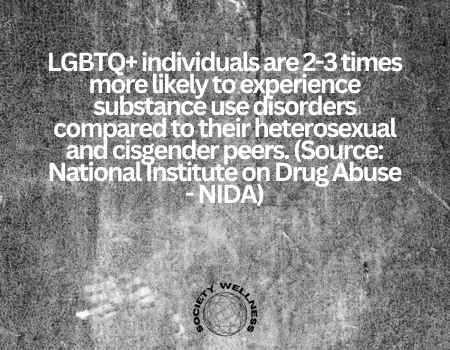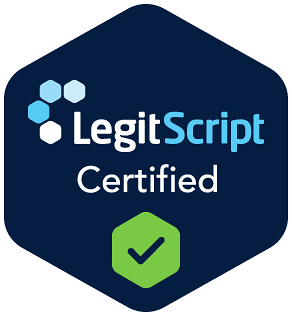Drug addiction recovery is a multifaceted journey that unfolds in distinct stages, each presenting its own challenges and opportunities for growth. For LGBTQ+ individuals, the recovery process can be particularly nuanced, as it often involves addressing identity-specific stressors such as discrimination, societal stigma, and co-occurring mental health conditions. By understanding the stages of recovery and accessing affirming care tailored to the LGBTQ+ community, individuals can achieve lasting sobriety and a renewed sense of purpose.
At LGBTQ Addiction Centers, we provide specialized care that acknowledges the unique challenges faced by LGBTQ+ individuals. Through programs like LGBTQ Partial Hospitalization Treatment, LGBTQ Intensive Outpatient Program, and LGBTQ Substance Abuse Treatment, we offer a safe and supportive environment for individuals to heal and thrive.
Why LGBTQ-Centered Care is Essential in Recovery
Recovery is more than just stopping substance use—it’s about addressing the underlying issues that contribute to addiction. For LGBTQ+ individuals, these issues often include:
- Minority Stress: Chronic stress due to discrimination and stigma.
- Family Rejection: Lack of acceptance or support from family members.
- Mental Health Challenges: Higher rates of anxiety, depression, PTSD, and suicidal ideation.
- Social Isolation: Feelings of exclusion or misunderstanding in traditional treatment settings.
LGBTQ-centered care provides a safe, affirming space where individuals can confront these challenges while building the tools necessary for long-term recovery.
The Stages of Recovery from Drug Addiction
The recovery journey is often described through stages, with each phase marking a significant step toward lasting sobriety. While the process is not always linear, understanding these stages can help individuals navigate the path to recovery more effectively.
1. Awareness and Recognition
The first stage of recovery involves acknowledging the existence of a problem and recognizing the need for change. For many LGBTQ+ individuals, substance use begins as a way to cope with identity-related stress, trauma, or rejection, making it difficult to recognize its harmful impact.
- Signs of Recognition:
- Admitting that substance use is affecting relationships, work, or health.
- Experiencing feelings of guilt, shame, or a desire to quit but feeling unable to.
- How LGBTQ Addiction Centers Help:
- Offering confidential assessments to help individuals evaluate their substance use.
- Providing affirming environments where individuals feel safe discussing their challenges without judgment.
2. Preparation and Commitment to Change
Once individuals acknowledge their addiction, the next step is preparing for change. This stage involves overcoming internal and external barriers to treatment, such as fear of discrimination or lack of access to affirming care.
- Key Steps in Preparation:
- Researching LGBTQ-centered treatment options.
- Building a support network of affirming friends, family, or peers.
- Setting realistic goals for recovery.
- How LGBTQ Addiction Centers Help:
- Offering tailored consultations to match individuals with the right program, such as LGBTQ Partial Hospitalization Treatment or LGBTQ Intensive Outpatient Program.
- Providing resources for family support and peer connections.
3. Detoxification and Stabilization
Detoxification, or detox, is the process of clearing substances from the body. This stage can be physically and emotionally challenging, as individuals may experience withdrawal symptoms that require medical supervision.
- Substances Often Requiring Detox:
- Alcohol: LGBTQ Alcohol Addiction Treatment includes medication-assisted detox and supportive care.
- Benzodiazepines: LGBTQ Benzo Addiction Treatment focuses on managing withdrawal symptoms safely.
- Opiates and Heroin: LGBTQ Heroin Addiction Treatment and LGBTQ Opiates Addiction Treatment offer specialized medical and therapeutic support.
- How LGBTQ Addiction Centers Help:
- Providing 24/7 medical supervision during detox in LGBTQ Partial Hospitalization Treatment settings.
- Offering comfort measures and counseling to manage withdrawal symptoms and emotional distress.
4. Active Treatment and Skill Building
During the active treatment phase, individuals work on addressing the root causes of their addiction and developing coping strategies for a substance-free life.
- Treatment Modalities:
- Individual Therapy: Sessions with therapists trained in LGBTQ+ issues to explore personal challenges.
- Group Therapy: Creating a sense of community and mutual support among peers.
- Trauma-Focused Therapy: Addressing past traumas such as discrimination, violence, or rejection.
- Program Options:
- LGBTQ Partial Hospitalization Treatment (PHP): Intensive daily therapy for individuals with severe addiction or co-occurring mental health conditions.
- LGBTQ Intensive Outpatient Program (IOP): Flexible treatment for those balancing recovery with work, school, or other responsibilities.
- LGBTQ Outpatient Treatment Program (OP): Long-term support for maintaining sobriety and navigating daily life.
5. Relapse Prevention and Resilience Building
After completing active treatment, the focus shifts to building resilience and preventing relapse. This stage involves learning how to navigate triggers, manage stress, and maintain a healthy lifestyle.
- Relapse Prevention Strategies:
- Identifying and avoiding high-risk situations.
- Developing coping mechanisms for managing stress and emotions.
- Building a strong support network of LGBTQ+ peers and allies.
- How LGBTQ Addiction Centers Help:
- Offering ongoing therapy and support groups through LGBTQ Outpatient Treatment Programs.
- Providing resources for mindfulness, yoga, and other holistic practices to reduce stress.
6. Long-Term Recovery and Growth
The final stage of recovery focuses on maintaining sobriety and embracing personal growth. For LGBTQ+ individuals, this stage often includes reclaiming one’s authentic self and finding fulfillment in relationships, work, and community.
- Milestones in Long-Term Recovery:
- Achieving significant sobriety anniversaries.
- Rebuilding trust and relationships with family and friends.
- Pursuing meaningful activities, such as advocacy, education, or creative pursuits.
- How LGBTQ Addiction Centers Help:
- Providing alumni programs and ongoing support to help individuals stay connected to their recovery community.
- Encouraging participation in LGBTQ-focused recovery events and activities.

Specialized LGBTQ-Centered Programs
At LGBTQ Addiction Centers, we offer a variety of programs tailored to the needs of LGBTQ+ individuals at every stage of recovery:
- LGBTQ Substance Abuse Treatment: Comprehensive care for addiction to alcohol, cocaine, heroin, meth, and other substances.
- LGBTQ Alcohol Addiction Treatment: Focused support for individuals struggling with alcohol dependency.
- LGBTQ Cocaine and Meth Addiction Treatment: Specialized programs for stimulant addiction and its unique challenges.
- LGBTQ Benzo and Opiates Addiction Treatment: Safe, supportive care for individuals detoxing from high-risk substances.
- LGBTQ Mental Health Programs: Integrated treatment for co-occurring mental health conditions, such as anxiety, depression, or PTSD.
Conclusion
Recovery from drug addiction is a deeply personal and transformative journey, especially for LGBTQ+ individuals facing unique challenges. By understanding the stages of recovery and accessing affirming, LGBTQ-centered care, individuals can overcome addiction and build a brighter, healthier future.
At LGBTQ Addiction Centers, we are committed to providing compassionate, inclusive care tailored to your unique needs. Whether you are just beginning your recovery journey or looking for long-term support, our programs—such as LGBTQ Partial Hospitalization Treatment, LGBTQ Intensive Outpatient Program, and LGBTQ Substance Abuse Treatment—are here to help.
If you or a loved one is ready to take the first step toward recovery, contact us today at (888)964-8116. Together, we can help you navigate the path to sobriety and rediscover your authentic self.
FAQ on Recovery from Drug Addiction
What are the stages of recovery from drug addiction?
The stages of recovery include recognition and awareness, preparation and commitment, detoxification, active treatment, relapse prevention, and long-term recovery and growth.
Why is LGBTQ-centered care important for addiction recovery?
LGBTQ-centered care provides affirming, culturally competent treatment that addresses both substance use and identity-specific challenges, such as minority stress and discrimination.
What treatment options are available for LGBTQ+ individuals?
Treatment options include LGBTQ Partial Hospitalization Treatment, LGBTQ Intensive Outpatient Programs, LGBTQ Outpatient Treatment Programs, and LGBTQ Substance Abuse Treatment.
What happens during the detoxification stage?
Detox involves clearing substances from the body under medical supervision. LGBTQ Addiction Centers offer specialized detox services for substances like alcohol, benzodiazepines, heroin, and methamphetamine.
How does active treatment help in recovery?
Active treatment includes therapies such as Cognitive Behavioral Therapy (CBT), group therapy, and trauma-focused therapy to address the root causes of addiction and develop coping strategies.
What is relapse prevention?
Relapse prevention involves learning strategies to manage triggers, reduce stress, and maintain sobriety. LGBTQ-centered programs provide ongoing therapy and support groups to prevent relapse.
How do LGBTQ Addiction Centers support long-term recovery?
They offer aftercare services, alumni programs, and community connections to help individuals maintain sobriety and build fulfilling lives.
How can I access LGBTQ-centered addiction treatment?
Contact LGBTQ Addiction Centers to learn more about their specialized programs, including LGBTQ Substance Abuse Treatment and LGBTQ Mental Health Programs, and start your recovery journey.

